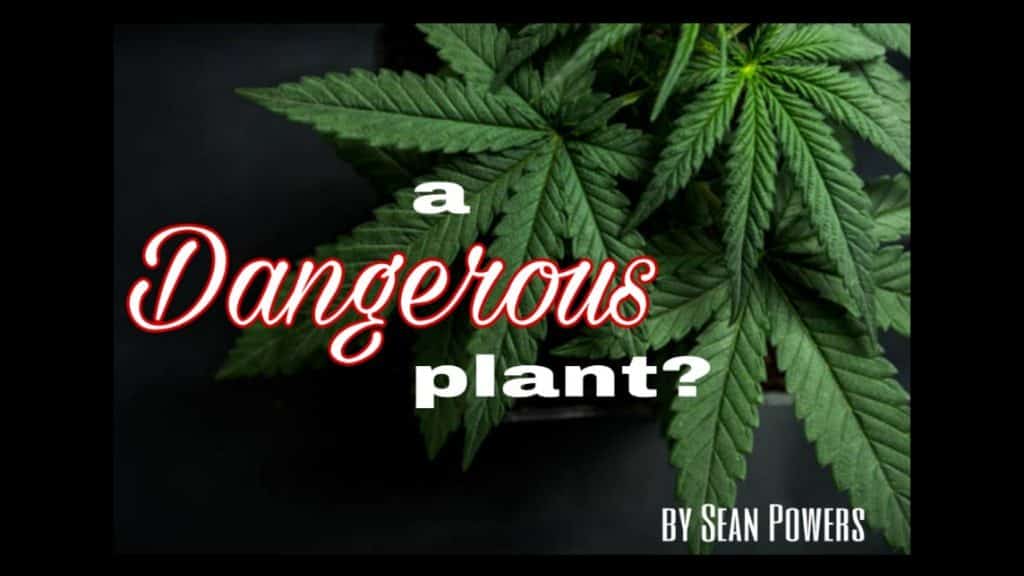Millions of people worldwide swear by its benefits and use it every day. Athletes from all sports also count themselves as fans of its medicinal benefits- increased focus, pain relief after grueling exercise, and ability to prevent disease, and a guard against depression, too. Simply stated, whether we like to admit it or not, the harvest from this one specific plant has already permeated our culture at large. The FDA has even acknowledged the benefits that come from regular use of this plant.
At the same time, it has its share of detractors. Some people, specifically those who don’t use it, cite a long list of side effects as evidence that suggests maybe it isn’t as harmless as its advocates portray. They point to accelerated heartbeats, increases in blood pressure, and even more immediate side effects- such as nausea and headaches- as reasons to avoid using it.
When you look at the evidence around this controversial substance, it becomes a bit confusing, and with good reason- there are more factors that go into the way each individual’s body and mind respond to it than we understand at this point. Our bodies and minds are controlled by a series of systems meant to regulate everything from body temperature to our energy levels, so pinning down a singular “good” or “bad” is impossible in regards to this plant. Is it a performance enhancer? Is it an intoxicant? We don’t have any concrete answers, as yet, just a multitude of studies being conducted to help give us a better picture of what exactly happens when we ingest this unique product.
Let’s take a step back, though. What we are discussing is a naturally occurring plant in nature; it has been modified by humans for optimal growing and harvesting, as well. Various “strains” make their way to consumers who choose the desired effect, or strength, they prefer. Farmers all around the world grow this plant, using a variety of methods with the objective being either a specific taste, color, odor, and effect, or combination of those traits.
So, with the above information being considered, would you say this substance should be banned in professional sports? If you answered yes, you believe that coffee should be banned in all professional sports. Kind of crazy, right?
All of the information presented above was sourced from years of the science surrounding the effects of coffee on the human body. And yes, each piece of information also holds true in regard to cannabis. The major difference is that, apart from the NHL, cannabis is tested for and banned in every major American sport, while coffee has never even been considered as a substance to consider banning. The fact is, cannabis is not a dangerous plant.
Banning cannabis is an absolutely ridiculous stance, and it is one borne of ignorance, rather than empirical evidence. Further confusing the issue, the legality of doctor-prescribed opiates, such as Vicodin or OxyContin, has been proven to do substantially more harm than good. At this point, nary a week goes by without a news story detailing the horrors of the ongoing nationwide opiate epidemic. While this epidemic has been largely caused by over-zealous prescription slinging doctors, the emerging legal market for cannabis has been under scrutiny, despite a black market that has thrived for years with no similar resulting calamity. There are a ton of articles already out there that go into further detail about the benefits and drawbacks of cannabis, but to summarize, it is fair to say most of the effects can be subjective to the individual, and there is no more factual long term danger from using cannabis than there is coffee. And, again, at the cost of sounding redundant, there is currently a nationwide opiate epidemic with more casualties to add every day. Cannabis is not a dangerous plant.
I have long disagreed with the policies surrounding cannabis use in sports, but in recent years, I have also taken my beliefs a step further- the hemp plant, from which cannabis is derived, is a matter of nutrition and wellness for the human body, and to ban its use is no more fair than banning athletes from drinking coffee. The term and even the idea of it being a “drug” are no more relevant than when applying that logic to caffeine. Specifically, the endocannabinoid receptors for cannabis, and the adenosine receptors for caffeine, are both part of systems in our body that derive benefits from each of the respective plants, and their interaction with our body and the plethora of factors at play, both internal and external, is cause for further study, not banishment ( https://www.labroots.com/trending/cannabis-sciences/12809/caffeine-vs-cannabis ). Above all, though, the simple fact that the human body does derive nutrition from this plant should immediately end the prohibition of its use by athletes, along with a lengthy apology. Cannabis is not a dangerous plant.
If you still consider yourself a skeptic about cannabis’ validity in the realm of nutrition, I am open to hearing why. Go ahead, and paint me your worst-case scenario- an athlete smokes a joint before a game and becomes too lethargic to compete at a high level? Coach can handle that problem, guaranteed. But could that same athlete smoke a bit less next time, and have a great game? Absolutely. But how would that be different from drinking too much coffee and having diarrhea or being too jittery to focus on the game one week, and then adjusting his intake next time on his way to a record-breaking victory? Or what about an athlete with a deficiency in his blood due to dietary restrictions? Is it cheating if he eats more chicken this week? Unless professional sports want to regulate the athlete’s entire diet, they need to immediately drop this draconian policy regarding something they simply do not know enough about to base their stance on. Alcohol is promoted throughout sporting events year-round, from on-field logo placements to commercials costing millions of dollars. Simultaneously, alcohol is behind hundreds of thousands of fatalities every year and has been the downfall of more than a handful of competitor’s careers. Conversely, there has yet to be a SINGLE report of a fatality directly attributed to cannabis- and that includes all of the years it had been completely illegal. There is, quite literally, no chance someone can overdose on cannabis- science has shown a human would need to consume 1500 pounds of cannabis in 15 minutes in order for it to kill them. Even Ricky Williams can’t come near that. Cannabis is not a dangerous plant. (https://www.independent.co.uk/news/health/how-much-marijuana-take-to-kill-you-fatal-weed-a8043856.html )
Earlier this year, when Los Angeles Angels pitcher Tyler Skaggs died from choking on his own vomit after ingesting oxycodone pills, fentanyl, and alcohol, I couldn’t help but think how had he just come home and smoked a joint, none of that would have had to happen. The same symptoms athletes look to alleviate by using lethal combinations of somehow-still-legal substances have been proven to be reduced by the use of cannabis. Inflammation, fatigue, stress, insomnia, and plenty of other symptoms fall into a more natural balance when cannabis is introduced properly. Sure, each individual needs to find out for themselves what method works best for them, but that can’t happen with the rules the way they are now. We have moved beyond the days of soda cans and skunk weed. Edibles, tinctures, and even non-psychoactive cannabis (CBD) are a few of the newer ways consumers are using this plant to find balance and relief. Education and information are the keys to a better future, not ignorance, and abstinence. If the unions and owners of professional sports teams truly cared about the health and safety of their players, not only would cannabis be removed from these ridiculous banned substance lists, it would be promoted by management and provided to their athletes, to further ensure quality and safety. Is this a controversial stance to take? Only if you have already been sold on the bill of goods currently promoted as “ok” and “healthy”. But for anyone looking at this issue objectively, it’s high time cannabis gets a fair shake, for the health and safety of the athletes putting the strain, stress, and damage on their bodies day in and day out. So, one more time for the people in the back…. Cannabis is not a dangerous plant.
What do you think? Should cannabis be considered a drug in the same light as other narcotics? Or do you consider it to be closer to coffee- a possibly helpful or harmful part of one’s diet? Comment below to share your insight.







